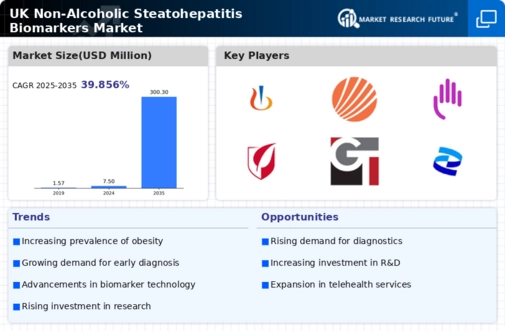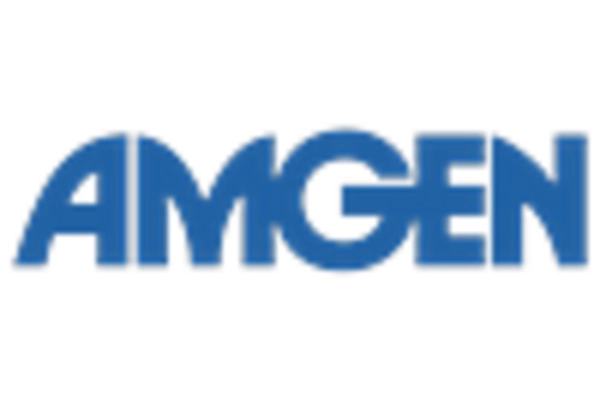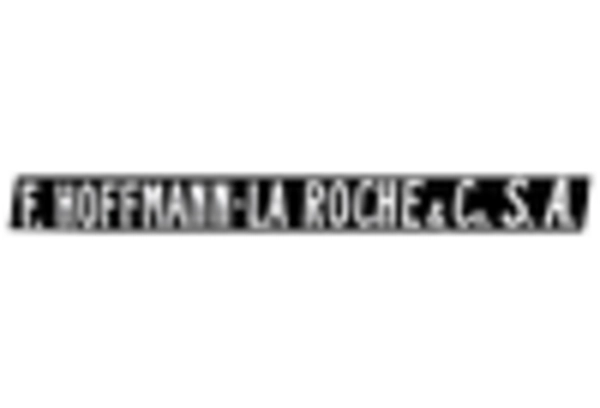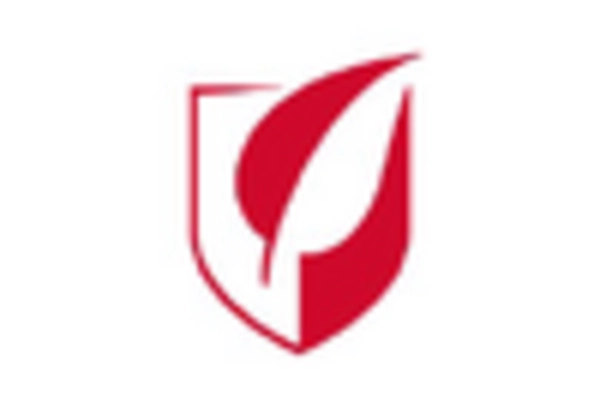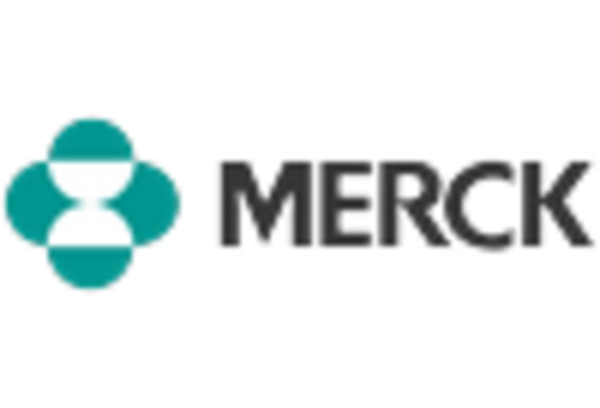Rising Healthcare Expenditure
The upward trend in healthcare expenditure in the UK is another significant driver for the non alcoholic-steatohepatitis-biomarkers market. With the National Health Service (NHS) allocating substantial funds towards liver disease management, there is a growing investment in diagnostic technologies and biomarker research. In recent years, healthcare spending has increased by approximately 4% annually, reflecting a commitment to improving patient outcomes. This financial support is likely to facilitate the development and implementation of advanced biomarker tests, enhancing their availability in clinical settings. As healthcare budgets expand, the non alcoholic-steatohepatitis-biomarkers market may experience accelerated growth, driven by the demand for innovative diagnostic solutions that align with the NHS's objectives of early detection and effective treatment.
Increasing Awareness of Liver Health
The growing awareness surrounding liver health in the UK is a pivotal driver for the non alcoholic-steatohepatitis-biomarkers market. Public health campaigns and educational initiatives have highlighted the risks associated with liver diseases, particularly non alcoholic fatty liver disease (NAFLD). This heightened awareness is likely to lead to increased screening and diagnostic testing, thereby driving demand for biomarkers. As individuals become more informed about the implications of liver health, the market may witness a surge in the adoption of biomarker tests. Furthermore, the UK government has been proactive in promoting liver health, which could further enhance the market landscape. The increasing focus on preventive healthcare is expected to contribute to a more robust market for non alcoholic-steatohepatitis-biomarkers, as healthcare providers seek effective tools for early detection and management.
Aging Population and Associated Health Risks
The aging population in the UK presents a compelling driver for the non alcoholic-steatohepatitis-biomarkers market. As the demographic landscape shifts, the prevalence of age-related health conditions, including liver diseases, is expected to rise. Older adults are particularly susceptible to NAFLD and its complications, necessitating effective diagnostic tools. The Office for National Statistics has reported that the proportion of individuals aged 65 and over is projected to increase significantly in the coming years. This demographic shift is likely to create a heightened demand for biomarkers that can facilitate early detection and management of liver conditions. Consequently, the non alcoholic-steatohepatitis-biomarkers market may experience growth as healthcare providers seek to address the needs of an aging population.
Emerging Research and Development Initiatives
The non alcoholic-steatohepatitis-biomarkers market is significantly influenced by emerging research and development initiatives within the UK. Academic institutions and research organisations are increasingly focusing on identifying novel biomarkers for NAFLD and NASH, which could lead to breakthroughs in diagnosis and treatment. Recent studies have indicated that specific biomarkers may correlate with disease progression, thus enhancing clinical decision-making. The UK government has been supportive of such initiatives, providing funding and resources to foster innovation in this field. As research continues to evolve, the market is likely to benefit from the introduction of new and more accurate biomarker tests, which could improve patient management and outcomes in the long term.
Integration of Biomarkers in Clinical Guidelines
The integration of biomarkers into clinical guidelines is a crucial driver for the non alcoholic-steatohepatitis-biomarkers market. As healthcare professionals increasingly recognise the value of biomarkers in diagnosing and managing liver diseases, there is a growing push to incorporate these tools into standard clinical practice. Recent updates to clinical guidelines have begun to emphasise the role of biomarkers in assessing liver health, which may lead to wider adoption in clinical settings. This shift is likely to enhance the credibility and acceptance of biomarker tests among healthcare providers. As clinical guidelines evolve, the non alcoholic-steatohepatitis-biomarkers market could see a corresponding increase in demand, as practitioners seek to align their practices with the latest evidence-based recommendations.


